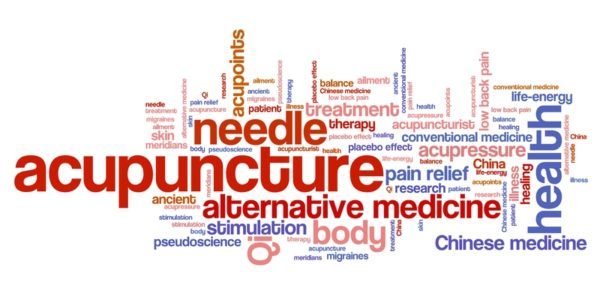Stress Management
Written by admin on . Posted in Uncategorized.
MANAGING STRESS
The “Essentials”
F. Afua Bromley, L.Ac, MSOM, Dipl.Ac
afuabromley@gmail.com
What is Stress?
Stress is a reaction your body experiences as a result of a demanding circumstance or event. Stress inherently isn’t a bad thing and is a normal part of life. Specifically, a stress reaction causes your nervous system to produce hormones (adrenaline and cortisol) and results in quickened breathing, a faster heartbeat, tightening muscles and even a sudden burst of energy. It is what can quickly get you moving if you sense danger, or give you the adrenaline rush when you are anticipating a event such as seeing a loved one you haven’t seen.
Negative Stress
Long term stress can be very detrimental to your health. Toxic relationships, financial insecurity, violent environments, environmental toxins, overwork, and even systemic and institutional racism can take their toll physically, spiritually and mentally. Negative Effects include:
- Lowers immunity
- Increases risk of heart disease, hypertension, diabetes, depression, anxiety, gastro-intestinal ailments (reflux, irritable bowel syndrome), insomnia, headaches/migraines
- Increases muscular tension and pain including back and neck pain
- Decreases rate of healing
- Some evidence relating cancer to long-term stress
- Decreases absorption of nutrients in food and decreases metabolism of food (increasing weight gain due to cortisol production from the kidneys)
HOW Do we Deal with Stressful Situations or long-term stressors?
Two basic questions:
- Can I change the situation?
- Can I change my attitude towards the situation?
The 4 A’s
- Accept
- Avoid
- Adapt
- Alter
Stress Relief “Toolkit”
- Acupuncture and massage are well-noted for their effectiveness for stress reductions(see acupressure handout)
- Essential Oils
- Herbal therapies: from everyday teas to more complex Chinese herbal formulas, teas can also help you deal with stress, or any of its side effects
- Meditation (basic breathing techniques)
- Exercise/Movement (yoga, tai chi, walking)
- Journaling
- Counseling/communication
- Art or music therapies or using other creative outlets
- Laughing
Essential Oils
Essential Oils have been used for more than 5000 years (since ancient Egyptian times) for a wide variety of reasons. The power of essential oils lies in the effectiveness of our sense of smell. Scents, even very subtle ones, can trigger powerful emotional, memories and physical responses. Some essential oils are stimulating, others are calming, and still others are aphrodisiacs. The following essential oils have specific calming properties:
Chamomile, lavender, sandalwood, ylang ylang, Melissa, sweet basil, geranium, neroli, rose
Essential oils are generally diluted either with a carrier oil (such as almond oil, sesame or grapeseed oil) or can be added to baths, lotions, body powders, or satchets. For baths, add 10-20 drops of essential oil directly into the water. For massage creams, oils, and lotions, add 10-20 drops of essential oil per 2 fluid ounces of carrier. These can be found inexpensively now at local retail or even discount stores.
Herbal Therapies
Herbal therapies have been used by every culture in the world for a variety of treatments. Some common herbal stress-relieving teas are:
- Chamomile (flower head): one teaspoon per 1 cup of water; mild sleep aid
- Lavender (flower head): one dry teaspoon per 1 cup of water; mild sleep aid
- Passionflower (flower head): one teaspoon per 1 cup of water; mild sleep aid
- Valerian root: one teaspoon per cup of water; strong sleep aid
- Peppermint: one tablespoon per cup of water; non-drowsy
- Lemon balm: one tablespoon per cup of water; non-drowsy
- Chrysanthemum: one tablespoon per cup of water; non-drowsy
Your Mental Health
Prevention and maintenance is crucial to maintaining good mental health. Unmanaged stress is the most common cause of severe mental health crisis. Find simple ways to manage stress: meditation, journaling, Tai Chi, Yoga, Prayer, proper sleep habits, counseling, time management, walks in nature, acupuncture, massage, reiki, and constructive conversations with friends. Seek professional help when needed. And yes, personality disorders/ schizophrenia, depression, anxiety and other mental health challenges do occur within the African/African-American community.
Your Spiritual Health
Whether or not you believe in a higher
power or subscribe to a particular religious denomination, how you frame the
world/universe and your role in it is important. Answering the question, why am I here? Where
am I going? What role do I play in the larger context? All of these are important in that they give
us a purpose and reason for being alive.
It also helps to prioritize those things that are most important to you
and can give you a focus to manage where your energies go to.
8 SIMPLE RULES TO LIVE BY
- Eat mostly vegetables and fruit. Whole grains (but not too much). Healthy fats (but not too much). If you eat meat, eat as cleanly as possible (no hormones or preservatives). Eat whole food – little to no processed foods. Don’t eat too much.
- Drink mostly water or non-caffeinated herbal tea.
- Get enough rest (7+ hours/night) and relaxation. Meditate/pray/reflect
- Exercise daily. Walking is free.
- Laugh often and keep a positive attitude. Find the joy or the silver lining
- Be flexible and keep an open mind. Life happens – not everything will go as planned – jobs, relationships can go up and down, health issues, financial woes (or successes). Being adaptable helps keep things in perspective and reduces stress.
- Learn something new every day. A new word, a neighbor’s name, a yoga pose, a growing up story from an older relative, a new book, etc. Engage and challenge yourself mentally. Hard to think about when you are learning a lot in school,
- Develop and maintain healthy relationships. Those who live the longest with the best quality of life have good relationships and support systems. Family/friends/community. All healthy relationships may involve some conflict at different times – learn to argue or disagree in healthy ways. Toxic or co-dependent relationships should be either avoided or managed with clear boundaries.
COVID-19 Health Tips
Written by admin on . Posted in Uncategorized. Leave a Comment
Staying Healthy in Challenging Times
By F. Afua Bromley, MSOM, L.Ac., Dipl.Ac. (NCCAOM)®
March 26, 2020
With so much news media reporting hourly about the Coronavirus Disease 2019(COVID-19), it is important for all of us to be fully informed with accurate information. Verifying sources of information is equally important. The CDC (Center for Disease Control) is the best direct resource for global and nationwide updates on viral transmissions. Johns Hopkins 1 and the Atlantic Monthly COVID-19 2 trackers are also reliable sources of data. Local health departments are the most accurate sources of local reported cases. As local authorities begin to restrict movement and business in some regions, be certain to comply with those guidelines. Here in the Saint Louis region, our own recent temporary closure in compliance with the recent “shelter-in-place” orders is our part to help slow down the spread of COVID-19.
So how do you stay healthy – body, mind, and spirit?
Some simple things will lower your risk of contracting the flu or COVID-19 (yes – flu season is still here!). Most of the symptoms of COVID-19 are the same as the flu – cough, runny nose, fever, malaise. Because of the similarities, many of the precautions/prevention measures and treatments are the same or similar. Most of what you need to know about reducing risk of contracting and/or transmitting either the flu or COVID-19 should be what you do daily. Take a deep breath and “keep it simple”:
Coronavirus and Influenza virus precautions3
- Wash your hands with soap thoroughly for at least 20 seconds and rinse completely under running water This may be the single most important precaution to prevent any type of infection. An alcohol based hand sanitizer can be used when handwashing is not possible; however, washing hands is more effective in minimizing transmission.
- Stay home if you are symptomatic and/or running a fever (perceived or confirmed by thermometer). With the shelter in place orders, minimize how often you go out to the grocery stores or other necessary errands. Moderate exercise outside is helpful in boosting your immune system – just stay away from others outside your home. If a patient has been exposed to someone with COVID-19, the CDC advises they remain quarantined for 14 days since asymptomatic transmission is possible4. This means someone could be positive for COVID-19, be contagious and actively infecting others without showing any symptoms or ever getting sick.
- Cleanliness is key! Frequently wipe down high contact common and public surfaces with a disinfectant solution. knobs, toilet and faucet handles, should be wiped down at a minimum of daily. In my home, we are using glasses once then putting them in the dishwasher.
- Cover your mouth and nose with tissue or cloth if you sneeze or cough. Then wash your hands! No need to wear a mask unless you are actively ill and around other people. Refrain from touching your eyes, nose, hands (minimize shaking hands), and mouth as these are parts of the body that are high transmission areas.
- Limit exposure to large groups of people in small spaces. Wash your hands frequently when in public spaces, no shaking hands or hugging (social distancing). Check on older friends and relatives offering to do store runs when you go. Drop off bags at the door – grandma and grandpa only need virtual hugs right now.
Other Lifestyle Prevention Measures
- Keep your immune system up!!! Get enough sleep at night, drink lots of water, create an exercise program to do indoors or outdoors as weather, meditate (guided meditations are great for stress relief). Tai chi is great for your body and mind (free online videos are plentiful).
- Stimulate your mind! Read or re-read your favorite books or new subjects. Learn a new language (free or inexpensive apps are online). Write/Draw/paint/photograph/sculpt. Call up friends, relatives or colleagues to check on them. Try to balance out how much screen time you participate in. Sitting is still the new smoking – so taking breaks even if you are working from home is important.
- Feed your body right. Lots of fruits and veggies. Minimize refined foods and sugar. Vitamin C (1000-2000 mg) 2-3 times a day. There are a number of Chinese and western herbs that can help boost your immune system. Astragalus is one of the main herbs we in East Asian medicine use to help “tonify qi” and boost the immune system. Sunshine/Vitamin D is also a big help. More to come on supplements and herbs that may help.
-
https://covidtracking.com/data
-
https://www.arcgis.com/apps/opsdashboard/index.html#/bda7594740fd40299423467b48e9ecf6
-
https://www.cdc.gov/coronavirus/2019-ncov/infection-control/control-recommendations.html?CDC_AA_refVal=https%3A%2F%2Fwww.cdc.gov%2Fcoronavirus%2F2019-ncov%2Fhcp%2Finfection-control.html
-
Rothe, C., Schunk, M., Sothmann, P., et al.(2020). Transmission of 2019-nCoV Infection from an Asymptomatic Contact in Germany. New England Journal of Medicine. January 30, 2020. https://www.nejm.org/doi/full/10.1056/NEJMc2001468

